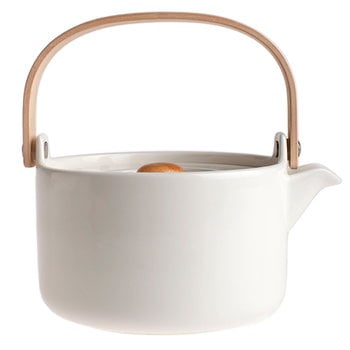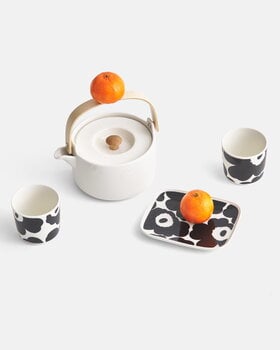The Oiva teapot by Marimekko is a timeless beauty perfect for the tea table. The classic Oiva teapot has a capacity of 7 dl, and it features a beautiful wooden handle and knob.
Oiva tableware collection, designed by Sami Ruotsalainen, includes cups, bowls, plates, teapots and different textiles and you will be free to combine them in an almost infinite number of ways, each one giving your table the right atmosphere you are looking for. Combine the different pieces from the Oiva tableware collection according to your mood, to the friends you will invite, to the food you will serve or to the textiles you will set the table with.









